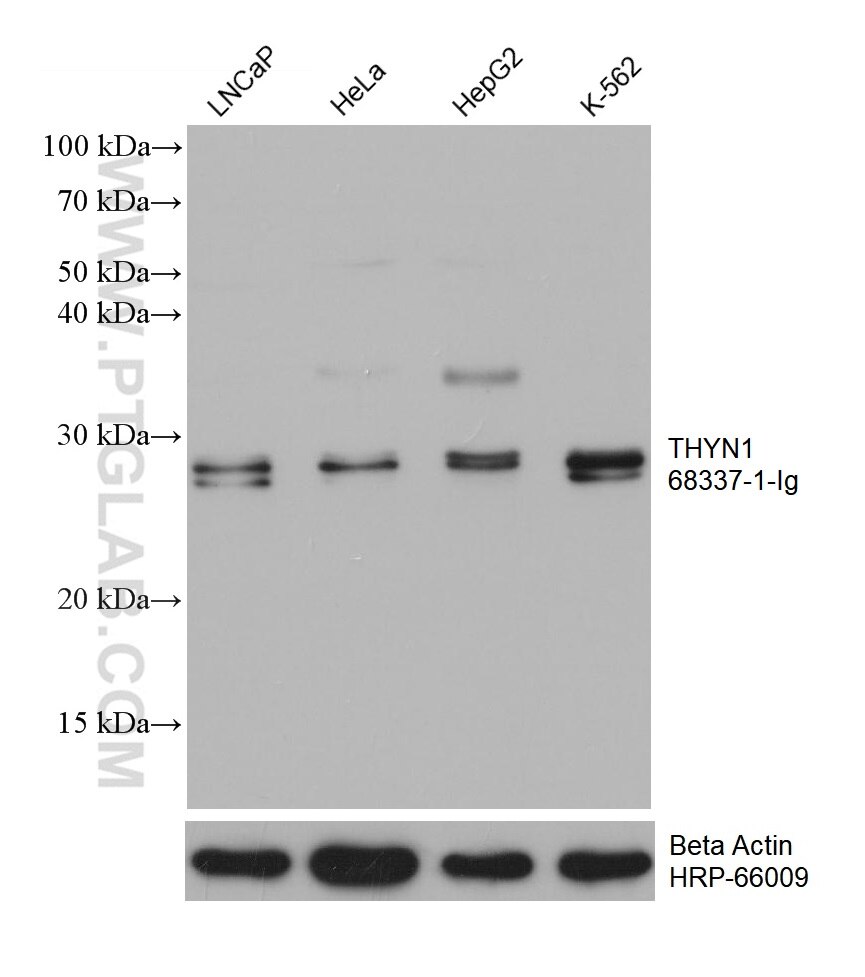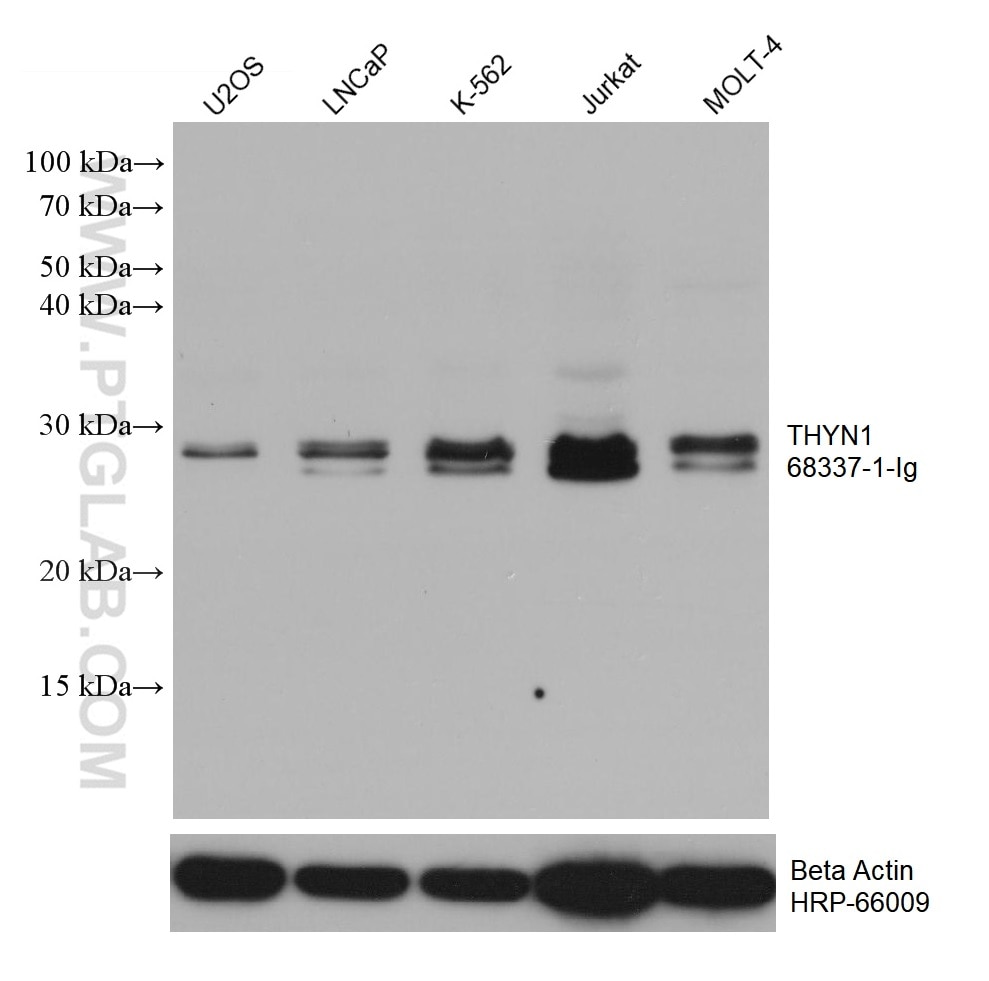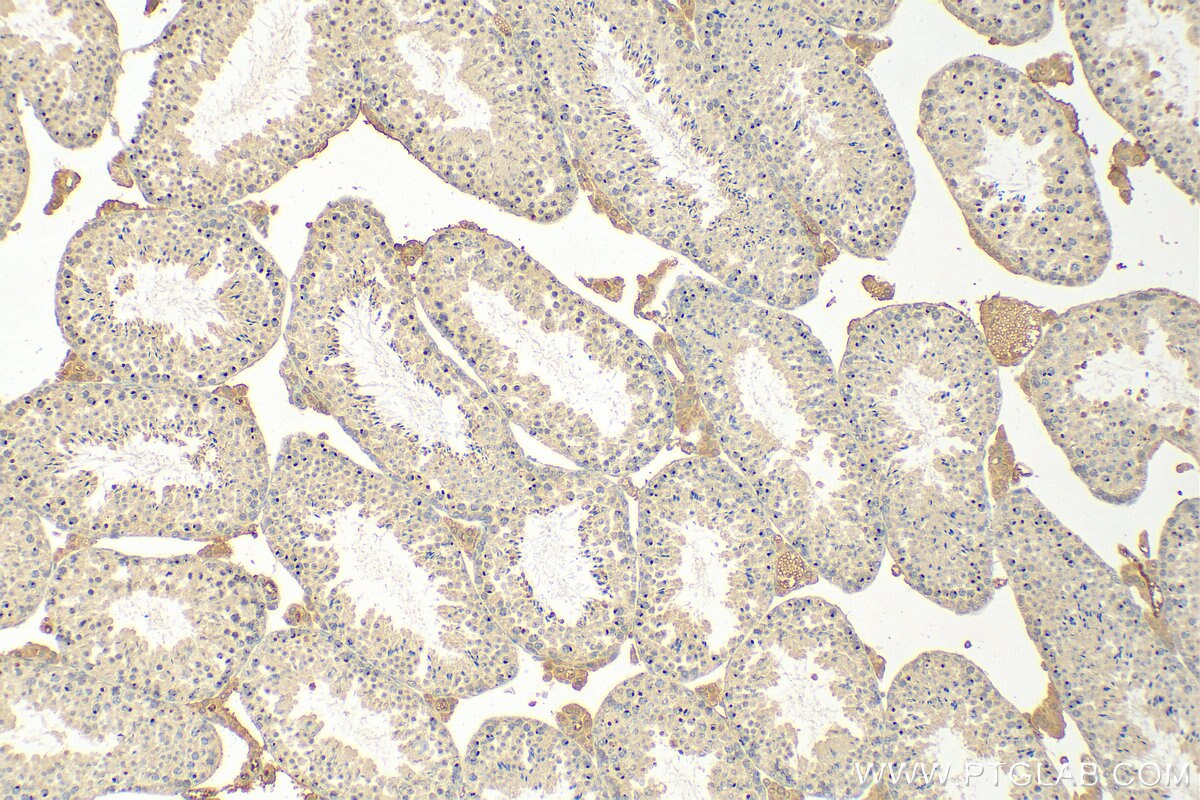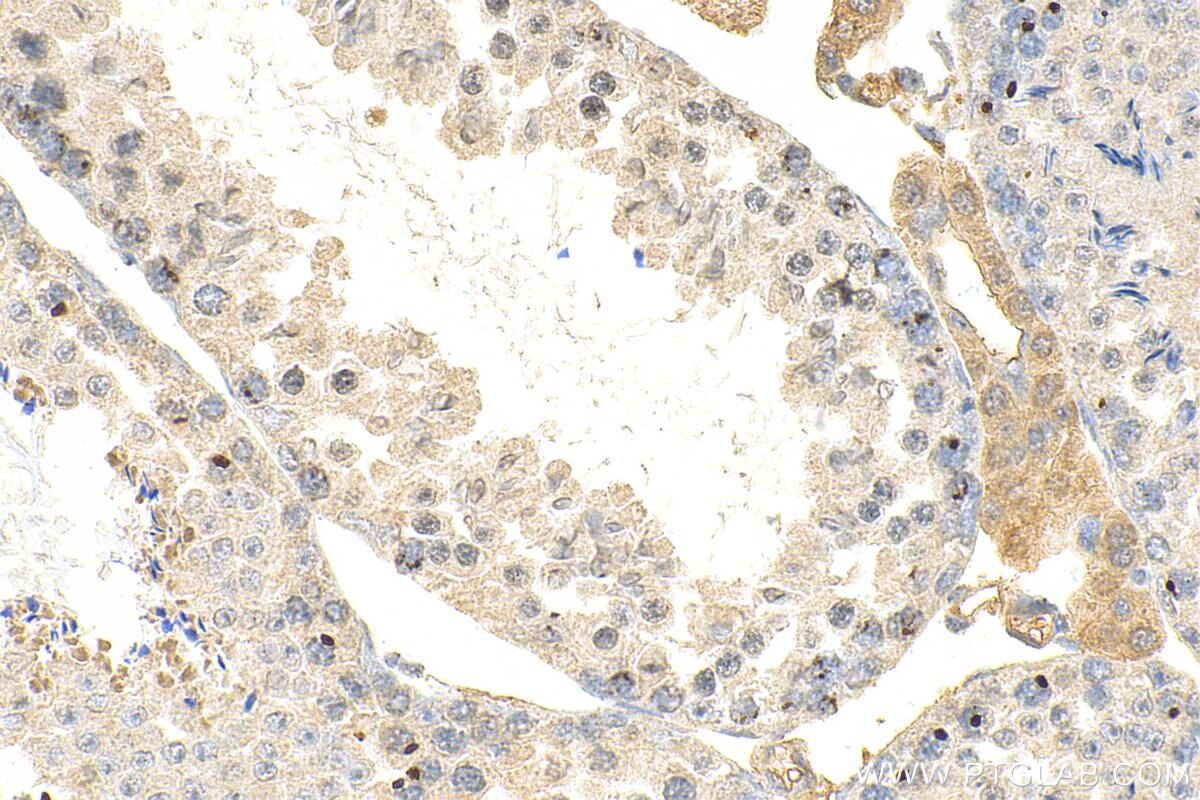Tested Applications
| Positive WB detected in | LNCaP cells, U2OS cells, HeLa cells, HepG2 cells, K-562 cells, Jurkat cells, MOLT-4 cells |
| Positive IHC detected in | mouse testis tissue Note: suggested antigen retrieval with TE buffer pH 9.0; (*) Alternatively, antigen retrieval may be performed with citrate buffer pH 6.0 |
Recommended dilution
| Application | Dilution |
|---|---|
| Western Blot (WB) | WB : 1:5000-1:50000 |
| Immunohistochemistry (IHC) | IHC : 1:500-1:2000 |
| It is recommended that this reagent should be titrated in each testing system to obtain optimal results. | |
| Sample-dependent, Check data in validation data gallery. | |
Product Information
68337-1-Ig targets THYN1 in WB, IHC, ELISA applications and shows reactivity with Human, mouse samples.
| Tested Reactivity | Human, mouse |
| Host / Isotype | Mouse / IgG1 |
| Class | Monoclonal |
| Type | Antibody |
| Immunogen | THYN1 fusion protein Ag8617 Predict reactive species |
| Full Name | thymocyte nuclear protein 1 |
| Calculated Molecular Weight | 225aa,26 kDa; 166aa,19 kDa |
| Observed Molecular Weight | 28 kDa |
| GenBank Accession Number | BC006978 |
| Gene Symbol | THYN1 |
| Gene ID (NCBI) | 29087 |
| RRID | AB_3085061 |
| Conjugate | Unconjugated |
| Form | Liquid |
| Purification Method | Protein G purification |
| UNIPROT ID | Q9P016 |
| Storage Buffer | PBS with 0.02% sodium azide and 50% glycerol , pH 7.3 |
| Storage Conditions | Store at -20°C. Stable for one year after shipment. Aliquoting is unnecessary for -20oC storage. 20ul sizes contain 0.1% BSA. |
Background Information
THYN1, also named as THY28, is a 28-32 kDa protein which located mainly in the nucleus. It appears to correlate with induction of apoptosis. (PMID:14601557)
Protocols
| Product Specific Protocols | |
|---|---|
| WB protocol for THYN1 antibody 68337-1-Ig | Download protocol |
| IHC protocol for THYN1 antibody 68337-1-Ig | Download protocol |
| Standard Protocols | |
|---|---|
| Click here to view our Standard Protocols |









